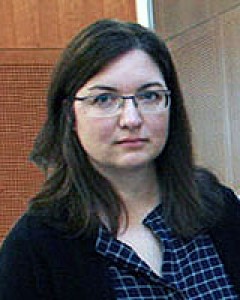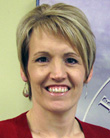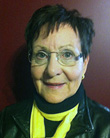Recent pockets of rural innovation illustrate the mutual benefits that result when rural and remote (rural/remote) health researchers enter into active collaborations with decision-makers and other community-based stakeholders (eg advocacy groups) to address the health needs of rural/remote communities. Ideally, collaborations bring together 'different perspectives and competencies to produce new knowledge about a complex process'1. Collaborations enable community-based partners to:
- access the expertise of researchers to apply scientific evidence at the local level2
- collect data at the local level that they may not have the resources or expertise to collect themselves
- be involved in developing and evaluating local intervention research that has immediate local impact3
- contribute findings from rigorously conducted local studies to the wider scientific literature base2.
In turn, collaborations enable researchers to:
- elevate their understanding of local research problems2
- attract greater involvement from research participants3
- embed research locally so as to explore the effects of 'active ingredients' upon the implementation process3
- substantially increase the likelihood that research will be put into practice4
- meet the requirements of funding agencies to involve decision-makers throughout the research process5.
This editorial highlights the role of researchers as collaborators in rural/remote health services innovation using examples from recent collaborations between the Rural Dementia Action Research (RaDAR) Team and community-based stakeholders.
Research/knowledge uptake theories of social change
Since adopted in the 1940s by rural sociologists to investigate the uptake of research-based ideas, technologies, and practices, 'innovation diffusion theory' has been key to explaining the role of community social dynamics in the spread of agricultural, health, and education interventions6. While early theories of social change through research/knowledge uptake (eg diffusion theory, knowledge utilization studies, and dissemination theories) traditionally considered decision-makers as knowledge users, recent social change theories recognize decision-makers' expanding roles as knowledge producers and co-producers3. For instance, dissemination theorists investigate the activities that researchers engage in that are most effective in the research/knowledge uptake process while considering decision-makers as somewhat passive recipients. These investigations evolved into the current implementation science strategies of partnering with decision-makers early and often7 and adhering to certain principles (eg intervention fidelity, penetration, acceptability)1 when adapting interventions in local settings to improve the likelihood of intervention success, sustainability and scale-up to other settings4. Current research/knowledge uptake theories, such as community-based knowledge translation studies, recognize that co-produced knowledge is useful for both community-based partners and researchers. For instance, co-produced knowledge can be taken up in the advocacy work of both parties, potentially in partnership to influence the local policy-making process2.
Rural/remote health services innovation
Although rural/remote health research has a long and justified history of problem description, engaging in health services innovations as active partners enables researchers to be 'problem-solvers' as well as 'problem-describers'8. Explorations of the problems of rural/remote health have led to geography being considered a key determinant of both health9-11 and health service use12-14. Furthermore, there is a better understanding of rural/remote communities as not necessarily the sites of rural idyll characterised by supportive and close-knit relationships that were once presumed13,15. Recent literature that describes the challenges facing families of individuals with dementia and providers of dementia care in rural/remote communities exemplifies the valuable role of researchers as problem-describers15-18.
When rural/remote health services researchers engage in problem-solving research, they help to challenge the traditional view that rural/remote communities are somehow 'less than' their urban counterparts, and help to promote the view of rural/remote health service providers as innovators8,19. Promoting rural/remote communities as 'incubators of innovation'8 and identifying innovators can help to facilitate healthcare improvement20. Mitton et al21 has made a significant contribution to this growing field by identifying numerous rural/remote health service innovations in service delivery (eg expanding the scope of practice of service providers such as nurses and paramedics), telehealth use (eg for the purposes of after-hours triage, consultations prior to travel for surgery, tele-ultrasound) and use of ehealth (eg to train and offer continuing education to providers and patients).
Rural Dementia Action Research Program
The Rural Dementia Action Research Team (led by DM) was formed in response to a Canadian Institutes of Health Research (CIHR) call for the development of Community-Based Primary Health Care (CBPHC) Teams. Rural/remote individuals with dementia have access to fewer and less frequent formal services (eg home care, primary health care, respite services)17 and rural/remote caregivers use few formal support services18. The amount and frequency of dementia-related services are affected by a host of factors, including funding cutbacks, travel distance and shortage of public and/or private transportation options, and health human resource shortages due to recruitment and retention difficulties22. Aside from access as the single most pressing issue that delineates the dementia care experiences of rural/remote residents, service users are also disadvantaged by a low awareness of existing services and the navigation process, inappropriateness of existing services, insufficient dementia care training among service providers, social isolation and dearth of caregivers in home communities, and stigma associated with requesting help and using services15-18,23.
Many of the RaDAR Team members have a long history of collaboration as members of the New Emerging Team program (led by DM) funded by CIHR in 2003 to establish the Rural and Remote Memory Clinic24, currently receiving operating funding from the Saskatchewan Ministry of Health. Two planning sessions with stakeholders and several one-on-one meetings with decision-makers (eg leadership in SK health regions) informed the research problems addressed in the CBPHC proposal. The planning sessions were attended by SK health region directors, family physicians, nurse practitioners, other healthcare professionals, family caregivers, Alzheimer Society of Saskatchewan, Saskatchewan Health Quality Council, and health region employees. Stakeholders identified a need for more accessible, appropriate, and timely services for rural patients with dementia and their caregivers, and for increased knowledge levels among the general public, families and caregivers, and healthcare professionals22. Examples are drawn from the RaDAR program to suggest that researchers can take on roles in collaboration by co-producing local knowledge, creating opportunities to collaborate, accepting invitations to collaborate, and sustaining collaborations regardless of funding outcomes.
Co-producing local knowledge
In response to stakeholders' recommendations gathered during development of the CBPHC proposal, the first provincial investigation of the magnitude of differences between actual dementia care in Saskatchewan and best practice recommendations is currently underway. This gap analysis consists of a best practice review of national level dementia strategies; a provincial administrative health data analysis that will provide provincial prevalence and incidence rates of dementia as well as explore health service use patterns by age, gender, rural/urban, and health region; and a provincial environmental scan of dementia-related services and resources by health region. The development of each component of the gap analysis has been informed by the scientific literature as well as a steering committee of stakeholders and RaDAR Team members. The role of the steering committee is to guide the gap analysis by providing feedback on methodology, interpreting findings, and assisting with policy recommendations.
Although the application for CBPHC Team funding was unsuccessful, the RaDAR Team is currently working with stakeholders to develop a multi-year intervention research program to improve PHC delivery to rural/remote individuals with dementia and their caregivers. This research program fully aligns with the priorities of PHC renewal in Saskatchewan: patient-centred, community-designed, and team-delivered25. Wakerman and Humphreys suggest that knowledge gaps in rural/remote PHC innovations include a lack of 'high-quality health systems evaluation' and systemic solutions, and insufficient attention to rural/remote diversity26. To address such gaps, the interventions to improve PHC delivery of dementia care will initially be developed and implemented in partnership with one PHC team in one health region. Data will be gathered on the implementation process, taking into account the rural/remote context, and this knowledge will be used to scale up the interventions to other PHC teams in the partner health region and other health regions.
Creating opportunities to collaborate
The Annual Summit of the Knowledge Network in Rural and Remote Dementia Care was initiated in 2008 as a means for gathering together the 27-member Decision-maker Advisory Council for the Applied Chair in Health Services and Policy Research (held by DM). The Summit provides a unique venue for concentrated knowledge exchange and collaboration between researchers and stakeholders in rural dementia care27. While the Summit provides a vehicle for traditional research dissemination, it also brings researchers, families, healthcare professionals, and other stakeholders together to share innovations in rural/remote dementia care. The Summit's evening poster session, followed by a full day of presentations, panel discussions, small group work, and long breaks for informal discussions, create ideal opportunities for stakeholders to relay their personal experiences and collaborate with researchers to generate new research questions and insights based on these experiences. For instance, small group sessions at a previous Summit were used to develop a comprehensive list of dementia-related services across the continuum of care, to inform a provincial environmental scan (survey) of dementia-related services and resources. The Summit has become an integral part of the provincial knowledge exchange landscape in dementia care.
Accepting invitations to collaborate
The RaDAR Team leader (DM) has been invited to assist in the development and leadership of a provincial consortium of regional Dementia Advisory Networks (DANs) being created in health regions with the Alzheimer Society of Saskatchewan. The mandate of the Dementia Advisory Network in each health region is to 'serve as a vehicle to facilitate people and resources, coming together locally, regionally, and provincially to improve the system of care, which includes service delivery, education and research for persons with dementia, their families, and caregivers' (J Michael, pers comm, 2013). Network members will meet each year at a Provincial Consortium, to be held in conjunction with the Annual Summit of the Knowledge Network in Rural and Remote Dementia Care, to share their findings regarding regional gaps in dementia care and proposed solutions to address these gaps. The Indianapolis Discovery Network for Dementia is a successful example of a similar network that connects 'local research activities with local dementia care delivery systems'28.
Sustaining collaborations regardless of funding outcomes
Decision-makers enter into collaborations with a real need for problem-solving research5. When decision-makers partner with researchers on applications to research funding agencies, and an application is not successful, this need remains. When a decision-maker commits to taking part in research contingent upon funding, the researcher may also be committing to partnership even if the funding application is unsuccessful. For instance, the RaDAR Team's initial CBPHC application to CIHR committed to partially funding Dementia Advisors in three Saskatchewan health regions, conditional on the success of the funding application. Although the application was unsuccessful, RaDAR Team members (DM, JK) became members of the Sun Country Health Region Dementia Working Group. The working group, which includes executive leadership from Sun Country and the Alzheimer Society of Saskatchewan, was established as a first step in the health region's 12-month Dementia Hoshin, that is, priority initiative in improving healthcare services for individuals with dementia in the health region and the expansion of the Alzheimer Society of Saskatchewan's First Link program into Sun Country Health Region. The researchers' role has been to offer expertise in best practices in dementia care, assist with the collection of local data, and increase the health region's research capacity by working closely with the health region's newly appointed Dementia Project Coordinator. For instance, the researchers assisted with the development of an assessment of learning needs with regard to Alzheimer's disease and other dementias among healthcare providers. After the educational interventions have been developed and implemented by the health region, a follow-up assessment will be used to determine whether these interventions have had a significant impact on practice and competency in dementia care in the health region.
Conclusion
Major provincial and territorial reforms to healthcare policy and delivery as a result of the Canadian PHC renewal environment of the last decade have resulted in a 'culture change in primary health care'29. Primary healthcare researchers have a significant role to play in the ongoing transformation of the healthcare system by partnering with policy-makers and engaging in knowledge exchange30. MacLeod5 noted that rural/remote researchers have been accused of data extraction and of producing research that is not wholly useable by rural/remote decision-makers; in turn, researchers have been disappointed by the slow rate of research/knowledge uptake by rural/remote decision-makers. The trend toward collaborations between researchers and stakeholders in rural/remote health services innovation has the potential to address these issues; researchers can play their part by creating and accepting opportunities for such collaboration.
Julie G Kosteniuk PhD1, Debra G. Morgan PhD1, Joanne Bracken CAE2, Pat Kessler BScN3
1Canadian Centre for Health and Safety in Agriculture, Department of Medicine,
University of Saskatchewan, Saskatoon,
2Alzheimer Society of Saskatchewan, Regina,
3Home Care, Sun Country Health Region, Weyburn,
Saskatchewan, Canada
References
1. Proctor E, Landsverk J, Aarons G, Chambers D, Glisson C, Mittan B. Implementation research in mental health services: an emerging science with conceptual, methodological, and training challenges. Administration and Policy in Mental Health 2009; 36: 24-34.
2. Kothari A, Armstrong R. Community-based knowledge translation: unexplored opportunities. Implementation Science. 6: 59. (Online) 2011. Available: www.implementationscience.com/content/6/1/59 (Accessed 1 November 2013).
3. Rowley E, Morriss R, Currie G, Schneider J. Research into practice: Collaboration for leadership in applied health research and care (CLAHRC) for Nottinghamshire, Derbyshire, Lincolnshire (NDL). Implementation Science. 7: 40. (Online) 2012. Available: www.implementationscience.com/content/7/1/40 (Accessed 1 November 2013).
4. Durlak J, DuPre E. Implementation matters: a review of research on the influence of implementation on program outcomes and the factors affecting implementation. American Journal of Community Psychology 2008; 41: 327-350.
5. MacLeod M. Building bridges with decision-makers: rules for rural and remote health researchers. Rural and Remote Health 6: 567. (Online) 2006. Available: www.rrh.org.au (Accessed 1 November 2013).
6. Dearing J. Evolution of diffusion and dissemination theory. Journal of Public Health Management Practice 2008; 14(2): 99-108.
7. Dearing J, Smith D, Larson S, Estabrooks C. Designing for diffusion of a biomedical intervention. American Journal of Preventive Medicine 2013; 44(1S2): S70-S76.
8. Bourke L, Humphreys J, Wakerman J, Taylor J. From 'problem-describing' to 'problem-solving': Challenging the 'deficit' view of remote and rural health. Australian Journal of Rural Health 2010; 18: 205-209.
9. DesMeules M, Pong R. How Healthy are Rural Canadians? An Assessment of Their Health Status and Health Determinants. Ottawa: Canadian Institute for Health Information, September, 2006.
10. Lavergne M, Kephart G. Examining variations in health within rural Canada. Rural and Remote Health 2012; 12: 1848. (Online) 2012. Available: www.rrh.org.au (Accessed 1 November 2013).
11. Luginaah I. Health geography in Canada: where are we headed? The Canadian Geographer 2009; 53(1): 91-99.
12. Wilson K, Rosenberg M. The geographies of crisis: exploring accessibility to health care in Canada. The Canadian Geographer 2002; 46(3): 223-234.
13. Skinner M, Rosenberg M, Lovell S, Dunn J, Everitt J, Hanlon N et al. Services for seniors in small-town Canada: the paradox of community. Canadian Journal of Nursing Research 2008; 40(1): 80-101.
14. Crooks V, Schuurman N. Interpreting the results of a modified gravity model: examining access to primary health care physicians in five Canadian provinces and territories. BMC Health Services Research. 12: 230. (Online) 2012. Available: www.biomedcentral.com/1472-6963/12/230 (Accessed 1 November 2013).
15. Blackstock K, Innes A, Cox S, Smith A, Mason A. Living with dementia in rural and remote Scotland: diverse experiences of people with dementia and their carers. Journal of Rural Studies 2006; 22: 161-176.
16. Morgan D, Semchuk K, Stewart N, D'Arcy C. Rural families caring for a relative with dementia: Barriers to use of formal services. Social Science & Medicine 2002; 55(7): 1129-1142.
17. Morgan D, Innes A, Kosteniuk J. Dementia care in rural and remote settings: A systematic review of formal or paid care. Maturitas 2011; 68: 17-33.
18. Innes A, Morgan D, Kosteniuk J. Dementia care in rural and remote settings: A systematic review of informal/family caregiving. Maturitas 2011; 68: 34-46.
19. National Advisory Committee on Health and Disability. Rural Health: Challenges of Distance and Opportunities for Innovation. Wellington, New Zealand: National Health Committee, January 2010.
20. Worley P. Rural and remote communities - innovation in the midst of diversity. Rural and Remote Health 5: 458 (Online). 2005. Available: www.rrh.org.au (Accessed 1 November 2013).
21. Mitton C, Francois D, Masucci L, Wong S, Law S. Innovations in health service organization and delivery in northern rural and remote regions: a review of the literature. International Journal of Circumpolar Health 2011; 70(5): 460-472.
22. Morgan D, Kosteniuk J, Crossley M, Kirk A, O'Connell M, Stewart N, Forbes D et al. Report on the Community-Based Primary Healthcare Team Grant Planning Session, October 17, 2011, Planning for the Rising Tide: New Models of Rural Primary Healthcare for Persons with Dementia. Saskatoon, SK: University of Saskatchewan, January 2012.
23. Winterton R, Warburton J. Models of care for socially isolated older rural carers: barriers and implications. Rural and Remote Health 11: 1678. (Online) 2011. Available: www.rrh.org.au (Accessed 1 November 2013).
24. Morgan D, Crossley M, Kirk A, D'Arcy C, Stewart N, Biem J et al. Improving access to dementia care: development and evaluation of a rural and remote memory clinic. Aging and Mental Health 2009; 13(1): 17-30.
25. Saskatchewan Ministry of Health. Patient Centred, Community Designed, Team Delivered: A Framework for Achieving a High Performing Primary Health Care System in Saskatchewan. Regina, SK: Saskatchewan Ministry of Health, 2012.
26. Wakerman J, Humphreys J. Sustainable primary health care services in rural and remote areas: innovation and evidence. Australian Journal of Rural Health 2011; 19: 118-124.
27. Morgan D, Crossley M, Stewart N, Kirk A, D'Arcy C, Dal Bello-Haas V et al. Evolution of a community-based participatory approach in a rural and remote dementia care research program. Progress in Community Health Partnerships: Research, Education, and Action 2014; (in press).
28. Boustani M, Frame A, Munger S, Healey P, Westlund J, Farlow M et al. Connecting research discovery with care delivery in dementia: the development of the Indianapolis Discovery Network for Dementia. Clinical Interventions in Aging 2012; 7: 509-516.
29. Hutchinson B, Levesque J, Strumpf E, Coyle N. Primary health care in Canada: systems in motion. Milbank Quarterly 2011; 89(2): 256-288.
30. McPherson C, McGibbon E. Rural interprofessional primary health care team development and sustainability: establishing a research agenda. Primary Health Care Research & Development 2010; 11: 301-314.



